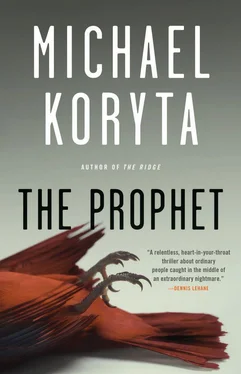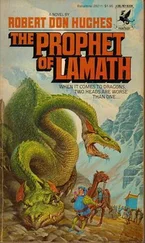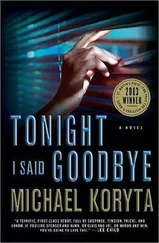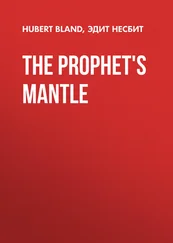He kept the gun in his lap as he drove, and he prayed. It was the strangest prayer he’d ever offered. He asked for strength to do the wrong thing, and then forgiveness for doing it.
He knew that he would need both.
He prayed while he drove, and kept only his left hand on the wheel, the right occupied by the pistol. He felt as if letting it go, even for an instant, might derail his determination. He followed the car’s navigation system as he wound through areas of town he hadn’t seen in years, and then the soft instructional voice that guided him to the street announced that he was approaching and that his destination waited on the left.
He stopped praying then, tightened his hand around the pistol, and slowed. The street sign above him promised that his navigation system was correct: he’d arrived at the address Adam had given him.
The only problem was that 2299 Amherst Road was not the home in the photograph. It was a brick ranch alone on acres of property, a FOR SALE sign in the yard, not the least bit like the house Adam had captured in his photograph of Dan Grissom. Kent hadn’t questioned him because Adam hadn’t hesitated. He gave both the street and the numbers as if they were sacred to him.
He’d also given Kent the wrong address.
There had been a tradition, years ago, that steel workers named the blast furnaces that produced their product. Adam wasn’t sure if such a thing remained in those few towns that still manufactured steel, but he remembered that the blast furnace of the Robard Company plant had been named Becky.
He parked beside the abandoned structure, his Jeep alone on the property, overgrown train tracks snaking away from him and the massive tubing of the blast furnace casting shadows where the sun fought heavy dark clouds scudding in on a western wind. For years he’d taken a strange pride in the smoke that rose from the weathered stacks, because his father had taken pride in working there. For a moment, when he opened the driver’s door, he swore he could still smell the smoke. Funny how the memory could taunt the senses.
He wore his standard jeans and boots and a black jacket that he left unzipped so he could reach the Glock holster easily. There was no drop piece today, no unregistered street weapon, just his own.
Maybe he’s gone, Adam thought as he walked away from the steel mill and out to Erie Avenue. Maybe he flushed after I killed Sipes, and we won’t see him again.
He paused when he reached the sidewalk and looked up the road. A white Buick Rendezvous was parked at the curb. The same car Grissom had left in the day Adam took the pictures.
For a time he stood where he was. Then he turned to his right, gazing out to where the lake stretched off toward Canada in an endless expanse of harsh water. He could see the fence that he and Sipes had passed through forty-eight hours earlier. A few gulls circled just above the spot where Sipes had died, scouring for food, dipping down to inspect, then finding nothing to their liking and returning to the sky.
Something buzzed, a warm hum on the silent street. His phone, vibrating in his jacket pocket. He slipped it out. Kent was calling.
He did not need to answer to understand that his little brother was calling from Amherst Road. Adam had known that he would go, and while it disappointed him, it also vindicated his decision. He’d sent Kent to the right place. There was no harm in 2299 Amherst Road. Adam was certain of that. He had stood in the yard and he had seen the things that were already there and others that could be there in time, and harm was not among them.
He held the phone until the last vibration was gone and the display went dark again, and then he put it back into his pocket and turned left, the lake to his back and 57 Erie Avenue ahead.
“Is my brother with you?” Kent said, phone in one hand and gun in the other, his car still running, the peaceful brick ranch house on Amherst Road still in front of him.
“No,” Chelsea Salinas told him. “Kent, what’s wrong?”
“I think we need to find him,” Kent said. “Fast.”
“What’s wrong?” she repeated.
“If he’s not with you then I think I know where he is, but you’re going to have to help me find the place. It’s a spot where Rodney Bova went in the middle of the night. That would have been Thursday morning. Adam had a tracking device on him.”
“Why is he going there?”
“To keep me from doing the same thing,” Kent said. “Chelsea, I need to know that address. Can you find it?”
“If the tracking device recorded it, then I can find it. Hang on.”
“Hurry,” Kent said. “Please.”
She didn’t question him. Set the phone down and he could hear things shifting in the office and could hear her fingers clicking over keys, and soon she was back, her voice fearful but firm.
“Fifty-seven Erie Avenue,” she said. “What’s happening, Kent?”
“I need to get there,” he said. “Fast.”
But Erie Avenue was all the way back across town, by the old steel mill. He could not make that drive fast. His brother had led him too far afield; he would never make it back in time.
“Call the police, Chelsea,” he said.
“The police.” She was hesitant, and he knew why. She was thinking of Adam and Sipes, of murder charges and prison cells, and as he slammed the car into reverse and began what he knew would be a too-late drive, she said, “I’m close. I’ll go find him.”
“Don’t do that,” he said. “Chelsea, just call the police.”
She’d hung up.
He dropped the phone and pressed the accelerator to the floor and blew through a stop sign without a care, looking at the map on the navigation screen and knowing well that he would not make it in time. Whatever was happening, Kent would arrive too late, just as Adam had designed. He called his brother again while he sped along the rural roads. There was no answer.
He returned to the side door, where Grissom had exited the house back when Adam had no idea who he was, where Sipes had come down to meet Adam, shirtless and smiling, in the minutes before his execution. The empty aluminum frame of the storm door hadn’t been pulled all the way shut, and it shifted in the gusting wind, a soft, steady knock.
Whap, whap, whap.
Adam’s phone buzzed again as he approached the door, and this time he silenced it instantly, without bothering to check the display. He removed the Glock from its holster, studied the closed door, and wondered how to approach it. Sipes had opened it peacefully, had agreed to walk and to talk. There was no guarantee that Dan Grissom would do the same.
It seemed to Adam that the time for knocking on doors was past.
He drew his foot back and drove his right heel into the door just beside the knob. It was a perfect shot, fast and hard, and the frame splintered and tore and the door swung open, revealing the dimly lit linoleum stairs that led up from the driveway and into the kitchen. As Adam shoved the remnants of the storm door out of his way and took the first of the steps, gun in hand, he heard someone rushing into motion inside, the sound to the left of the kitchen. He cleared the steps and spun to the left, in a shooter’s stance now, saw a blur of movement as Dan Grissom rushed out of the living room and down a hallway. Adam took one shot and only one; he knew even as he fired that he’d been a half-second too slow reaching the top of the stairs. The bullet caught air where Grissom had just been and then buried itself in the wall in a cloud of plaster dust.
It was just three strides from the top of the stairs to the threshold where the kitchen opened up into the living room, and Adam dropped to one knee as he reached it, then turned left again, saw that Grissom was at the end of the hall and, turning toward him, saw the shotgun in his hands and thought I wish it was a different weapon just before they both fired.
Читать дальше












